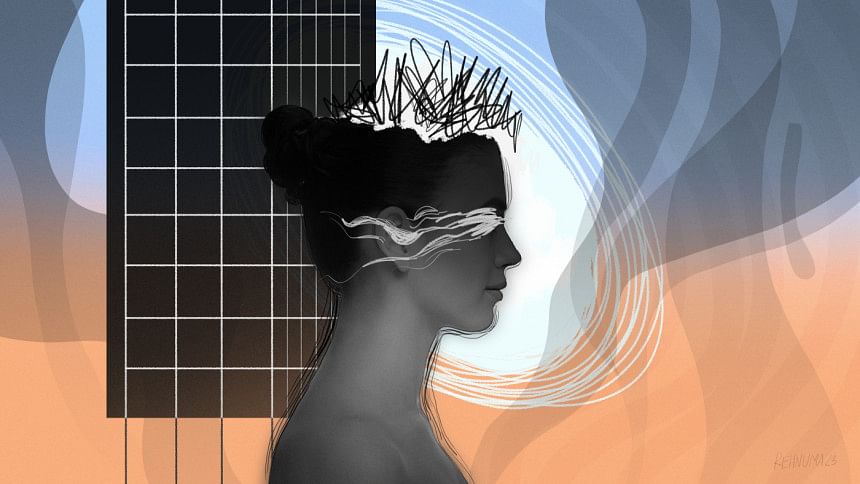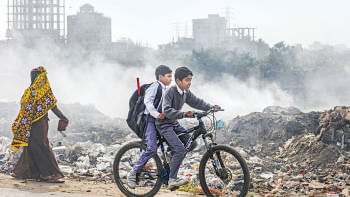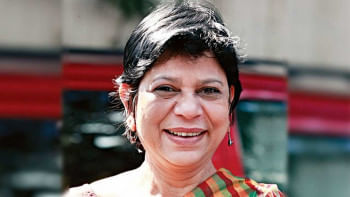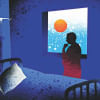Our youth is scavenging for mental health resources

To be honest, it doesn't feel right for me to write about mental health wellness. Not that I never feel mentally or emotionally (yes, those are separate aspects of one's psychological wellbeing) ill. I mean, do I burn out "easily"? Do I struggle to find time to process my emotions due to a work schedule that feels all-consuming? Or feel inadequate for not being able to do my job and regulate my emotions in a productive way? Do I feel happy, but always fail to hold on to that feeling for longer than a half hour? Do I try to convince myself that the concept of perpetual happiness is a scam, and that we, as humans in a suffocatingly capitalistic system, are not supposed to even be able to feel happy that often? Do I feel like I'm burdening someone if I share too much with them of what's going on in my head, because they, too, are struggling – as are we all? Yes to everything.
But it is with these thoughts of acknowledgement that the curtain draws on me dealing with my own mental health. Not that I haven't tried to go further. Every few months, when it does get Very Bad, I will scour every women's group on Facebook for resources, therapist reviews, online consultations, etc. Each time, I will decide on a therapist, with my primary requirement being a relatively cheap session fee. In fact, it is the session fees of most therapists which acts as a primary deterrent to seeking help for the mentally ill. In Dhaka, you will be hard-pressed to find a mental health professional charging a fee-per-hour of less than Tk 1,500. While this may not be too much in the current economic climate, it is far from pocket change for students and young adults who may require multiple sessions a month. And with this hurdle in place, many go without booking a visit at all, fearing that their hard-earned money may go to waste if the therapist is not a good match for them. This brings us to the issue of patient-therapist compatibility.
In every instance of a decision to get help, I am reminded of the countless negative experiences encountered by strangers and my close ones when seeking professional mental health treatment.
When a friend of mine had gone to a therapist during her school days, for example, the professional ended up revealing to her parents all that she had unburdened. Needless to say, that led to even more worries on her family's end and put my friend off of seeking help again for years to come. In another instance, last year, one therapist (who does all his "marketing" on social media) was alleged to have asked multiple of his young female patients out on coffee dates. He continues to practise and be preachy. There are also well-meaning therapists who prescribe religion as a tool to better one's state of mind. But while this is an approach to mental wellness that works for many people, isn't it best to seek religious guidance and mental health help from the respective experts in each field? Moreover, if religious advice is what a particular therapist will offer, they should advertise their services as such instead of springing it on patients who are looking for a more general evaluation of their mental health.
It is perhaps due to such gaps between what patients need and what Bangladeshi therapists can offer that many young people turn to mental health content on social media as an accessible alternative. A few years ago, this only consisted of nutshell posts on Facebook or Instagram condensing lifestyle articles from experts. But now, with the advent of TikTok, mental health awareness is more mainstream than ever. The minute-long bites of footage – ones made by therapists, psychologists, or wellness coaches in the West – have solidified the usage of many mental wellness terms in young people's vocabulary. Look no further to understand why "gaslighting" became Merriam-Webster's word of the year in 2022, or how every negative action may be described as being "toxic."
As difficult as it may be for those around them to sympathise with someone who suffers invisible mental health issues, in this country, it is close to impossible for said sufferer to seek the professional help they require.
Because there is now so much mental health knowledge available to us per scroll, it is easier than ever for one to recognise (not diagnose) the symptoms of their specific mental or emotional illness, if any. But on the flipside, many TikToks on the mental health trend are basically serious mental illnesses condensed into a few minutes of quirky video. And most of these are made by content creators (not professionals or experts of any sort) to be shareable, rather than educational. Being thus exposed to unfiltered misinformation on something as personal and impactful as one's mental health, younger netizens run the risk of worsening their situation. Such content coming from experts and influencers on the same platform/s can easily mislead viewers to weigh both on the same scale, which is highly problematic and may mislead them further.
The simple fact is that, especially in Bangladesh, mental health is not prioritised enough by authorities or individuals. Even though the current youth population is already making strides in destigmatising mental illness – by openly discussing their mental health and forgoing the shame their predecessors learned to associate with it – the country's medical community must do more to actually meet their needs. Not only do we need more mental health professionals at government-run medical facilities, they must also evolve to adequately help younger Bangladeshis who are eager to improve their mental health.
Lastly, as difficult as it may be for those around them to sympathise with someone who suffers invisible mental health issues, in this country, it is close to impossible for said sufferer to seek the professional help they require. It is overwhelming enough to have a mental health issue. But the inaccessibility of proper counselling and treatment, coupled with all manner of conflicting information spewed by influencers on social media, could very well make their issues seem insurmountable to a mentally ill individual. To say nothing of the fatigue that comes with confronting one's own mental illness. Simply being aware of it, without having access to the resources to treat it, can be debilitating for many. On this World Mental Health Day, I'd like us all to realise this: if someone we know is always complaining about how unhappy they are, chances are that this is all they can afford or bring themselves to do.
Afia Jahin is a member of the editorial team at The Daily Star.


 For all latest news, follow The Daily Star's Google News channel.
For all latest news, follow The Daily Star's Google News channel. 











Comments